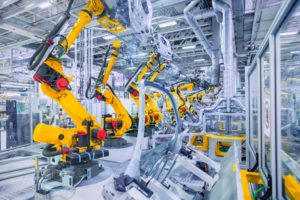As manufacturers across the board up cloud spending this year, the industry should continue to benefit from more speed, scale and accuracy brought to operations.
Growth in spending on cloud computing by manufacturers is expected to jump 23% in 2018 to reach a whopping $4.2 billion. Next year, that figure is expected to skyrocket again to reach $5.18 billion, according to the IDC.
As part of this larger trend, Enterprise Resource Planning (ERP) software, which offers functions such as billing and the code for how cloud companies and other enterprises recognize revenue sold on a recurring subscription model, is expected to be one of the biggest beneficiaries. Spending on ERP software is predicted to increase from $19.1 billion last year to reach a whopping $28.8 billion by 2028, securing a Compound Annual Growth Rate (CAGR) of 7%, according to Statista.
Leaders at manufacturing organizations, from small shopping floors to large production centers, have leveraged the cloud to decrease time-to-market, improve product quality and better respond to the demands and concerns of their customers.
In a recent report, Manufacturing Business Technology outlined ten key ways in which cloud computing is expected to drive manufacturing growth.
Takeaways from the report include an acceleration of cycle times, or the duration of time between the placement of an order until the product is produced and entered into finished goods inventory. This should be made possible through greater insights available to management via cloud-base manufacturing intelligence systems.
For many manufacturers who are required to meet compliance standards, such as medical device makers, automation should save valuable time and remove the burden of associates having to manually catalog and report records.
As cloud-based systems provide insight into inventory levels throughout the production process, this will ultimately lead to an improved supply chain performance. Meanwhile, as cloud-based applications integrate various teams’ functions such as product development, engineering, supply chain management and production planning on a single platform, manufacturers will achieve higher product quality levels.
























